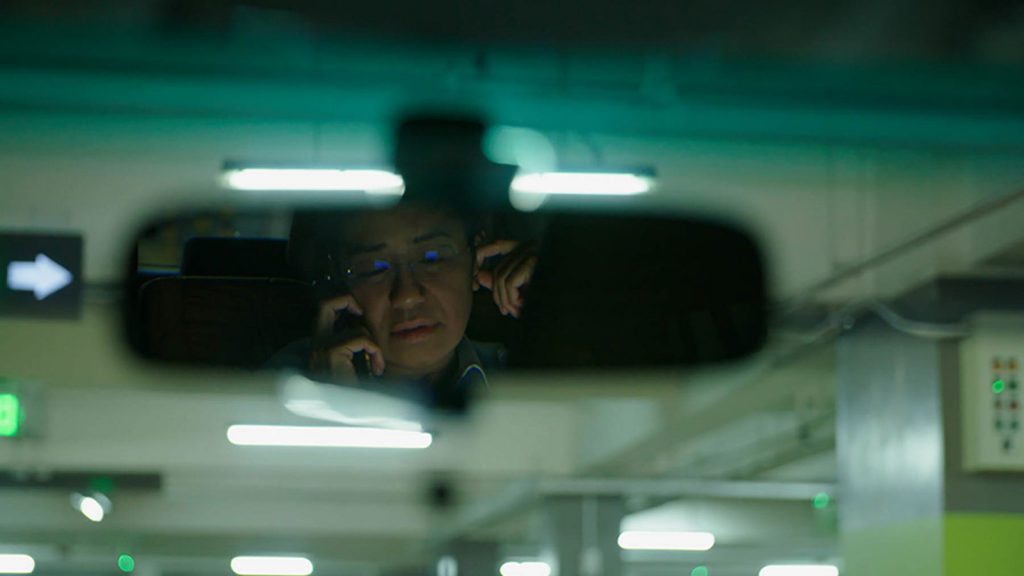
Ever wonder if a film could be made about the nature the God, gambling, theoretical physics, sexual perversion, love among strangers, a natural hallucinogen, and of course surfing? Never? Well, let me tell you about “String Theory”, a film down right spewing out themes like so much confetti. “String Theory” is a wobbly mix of new-agey hokiness and “Magnolia”-style ensemble storytelling that is somehow still an unexpectedly engaging film. Like its namesake, the theory that all things are comprised of sub-atomic, vibrating “strings” of pure energy (and something about eleven dimensions), it is intriguing and yet a little loopy at the same time.
The above reference to Magnolia might have clued you in about the film’s plot, which is an Altman-esque mosaic of an eclectic group of Los Angelinos and how their respective lives all gravitate toward (what else?) a church. Over the span of one day, the forces of good and evil vie for control over the fate of this church (the pastor of which has recently died), which doubles as a homeless shelter. The forces of good, consisting of one particular homeless man, appropriately named Homeless Al (Darrell Sandeen), and a neo-hippie surfer dude named David (Carmen Mormino), hope to convert the church to a permanent shelter. They are up against a corrupt politician (John Colton) and a greedy televangelist (Rico Anderson) who want to make it a parking lot. Rounding out the ensemble is an attractive, though inhibited lawyer (Janine Venable), a prostitute/loving mother (Valerie Young), her weirdly mute son (Melvin Johnson), a Latin numbers runner (Darion Basco), an ex-KGB politico (Adam Gregor), and a physics professor (Paul Shively). They each, in their own unique ways, play a significant role in the unfolding drama and maybe even discover a thing or two about themselves in the process.
“String Theory” is far from being a bad movie. In fact, for a debut effort, it’s ambitious and well crafted. The actors are uniformly competent and the screenplay by Freydont-Attie reveals an interesting, if unpolished, new voice. “String Theory” has all these things going for it but in the end gets bogged down by the weight of its heavy-handedness and uneven direction. Much of the film has a dated, made-for-TV quality about it, while the rest clearly constitutes Freydont-Attie’s bid for indie cred through edgier material. Beyond just its unevenness, the film is overstuffed with enough half-baked ideas and feel-groovy mantras to make one wonder if Freydont-Attie hasn’t himself tapped the DMT (the natural hallucinogen) one too many times for inspiration and if its use is required to fully “get” this film. I may suggest to the budding writer-director an alternate career path as a web-based spiritual guru or cult leader, we all know there’s just not enough of them. However, if he decides to stick with filmmaking, I think he’s at least off to a decent start. With “String Theory”, he attempted to infuse a jaded, post-modern world with “a spirituality based… on human intellect… and love.” Let’s just hope more intellect, and a little less love, goes into making his next feature.
